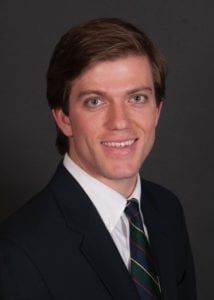
Trainee Author: Ryan Collins, AB
PhD Candidate, Program in Bioinformatics and Integrative Genomics
Harvard Medical School
(Photo courtesy Collins)
This study expands our understanding of the role of structural variants in the human genome. Collins et al. examine the landscape of large structural variants in a panel of ~700 individuals with autism spectrum disorder using linked-read whole genome sequencing and 10X Genomics.
They characterize types of structural variants that remain poorly understood, as they are difficult to capture by typically used sequencing methodologies. For example, 30% of the structural variants identified in the study are completely novel. Additionally, rare structural variants may be more likely to contribute to disease phenotypes such as autism, as they are often located near disease-related genes and regulatory elements.
ASHG: Could you describe your research for us?
Mr. Collins: My current research interests sit at the nexus of human genomics, medical genetics, statistics, and computer science. On a broad level, I’m interested in the various scales of structure encoded in the human genome, ranging from DNA-level changes (e.g. structural variation) up through the three-dimensional regulation of gene expression & chromosome folding within individual cells.
I’m particularly keen on understanding where, how, and why changes in genome structure alter the downstream biological function of genes, cells, and tissues, and how those changes may influence whole-organism phenotypes like disease states. In practice, our lab tries to ask and answer these types of questions by cataloguing human genetic variation (e.g. from whole-genome sequencing) in concert with functional genomics datasets.
ASHG: What are your career goals?
Mr. Collins: I’m still just a second-year PhD student in the thick of thesis research, so right now I’m focusing on the present and trying to keep as many doors open as I can. Long-term, I have a hard time imagining a more satisfying career than helping to accelerate the arrival of genetics/genomics-driven precision medicine, and I also recognize that we still know very little about the structure-function relationships of the human genome. To that end, I think my skills are best suited as a leader of a research group in human genomics, ideally as an independent investigator at an academic medical center or research university.
ASHG: Why did you choose genetics as your field of study?
Mr. Collins: Growing up as the son of a mechanical engineer, I have an intrinsic desire to understand how things work. We have a reasonably strong handle on the first principles of physical systems (e.g. Newton’s Laws), but the same can’t be said for biological systems.
To me, genetics has always been the no-brainer inroad into understanding biological systems, as it combines the promise of a mechanistic “blueprint” for all life on earth with the mysterious excitement of the unknown. Since middle school, I’ve never really questioned that genetics is the topic holding my attention best.
ASHG: Describe yourself in a phrase.
Mr. Collins: “Jack of all trades, master of none.”
The Trainee Paper Spotlight highlights outstanding papers written by trainee members of ASHG. Submit your science to be featured, and join the ASHG Trainee Forum to keep up with new ones.
